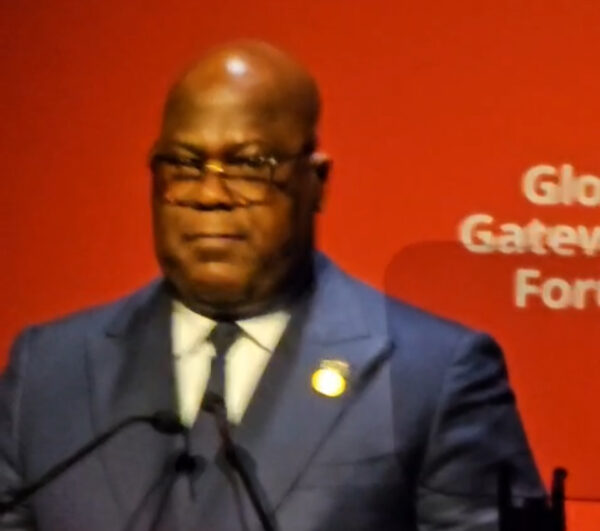By Rodrigue Fenelon Massala
From the podium of the Global Gateway Forum on October 7, 2025 in Brussels, Félix Tshisekedi surprised his audience. Where some expected a vindictive speech, the Congolese president chose a tone of peace. Without calling for sanctions against Kigali, he directly addressed Paul Kagame, asking him to embrace “the path of dialogue” and to “put peace above differences.”
A calculated diplomatic offensive
This speech, delivered on a European stage, goes beyond protocol. Tshisekedi combined personal conviction and political strategy, seeking to reposition the Democratic Republic of Congo as a constructive player in a region of constant tension. “Stability in the Great Lakes cannot be achieved through weapons,” he insisted, calling for “peaceful coexistence” and “immediate de-escalation” between Kinshasa and Kigali.
The timing is significant: as diplomatic discussions in Doha and Washington stall, the Congolese president chooses to address both his Rwandan neighbor and the major Western powers, under the watchful eye of the European Union.
Brussels, a symbolic platform
Speaking from Brussels is not a coincidence. This is where a part of the diplomatic balance between Africa and Europe is played out. By making this appeal, Tshisekedi shows that he wants to be seen not as a leader cornered by the M23 war, but as a responsible head of state, capable of rising above.
This message also targets the international opinion: it holds Kigali accountable while presenting itself as the man of de-escalation. A gesture of goodwill, but also a political test for Kagame.
Between openness and diplomatic pressure
Since 2021, relations between the two countries have deteriorated, amid accusations of interference and support for the M23 by Rwanda — accusations that Kigali denies, despite damning UN reports. In this climate, Tshisekedi’s call for peace can be seen as a double maneuver:
- On one hand, a gesture of goodwill, aiming to pave the way for regional dialogue.
- On the other hand, a way to put Kigali in the spotlight. A refusal to respond positively could be interpreted as a lack of willingness.
This diplomatic move also allows Kinshasa to obtain the moral and diplomatic support of the European Union, called upon by Tshisekedi to “get more involved in the pacification” of the region.
A message on multiple levels
By extending a hand to his rival, Félix Tshisekedi seeks to take the initiative. He reassures the Congolese population, demanding security in the East, while consolidating his international image as a peaceful and pragmatic leader. This message from Brussels, firm and conciliatory, fits into a logic of appeasement before a potential escalation of military tensions.
In the diplomatic backstage, the signal is clear: Kinshasa aims to be a peace actor, and Kigali will have to choose between isolation or reconciliation.


